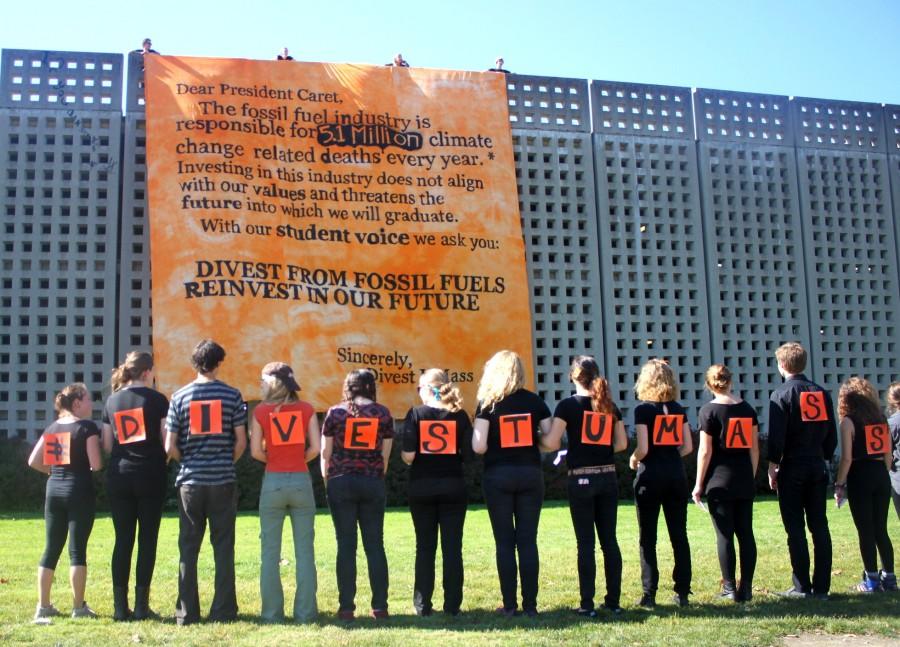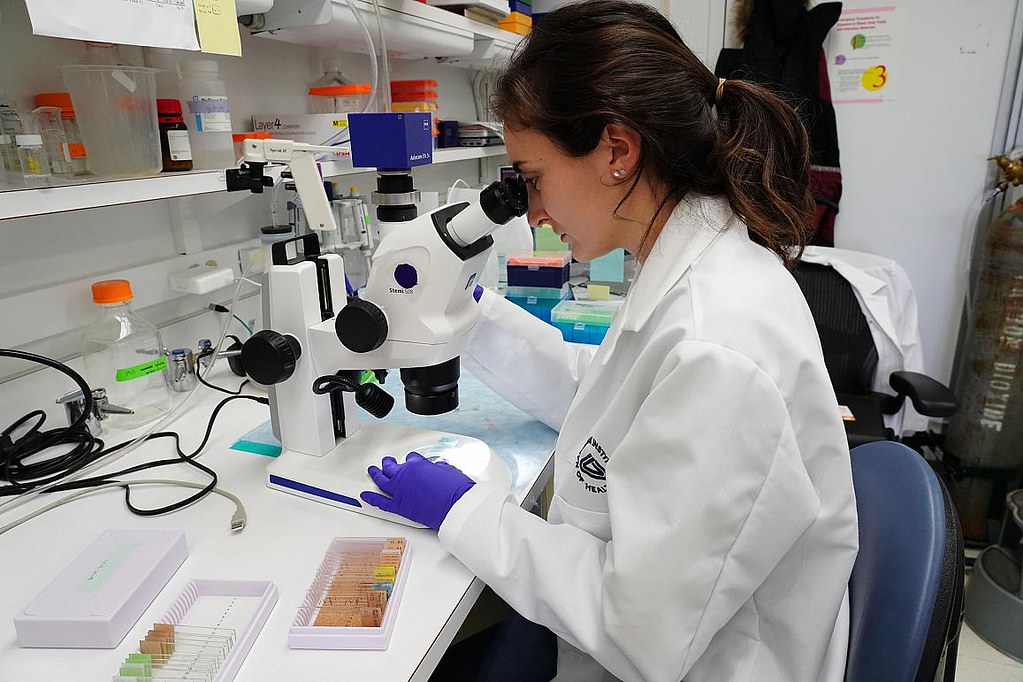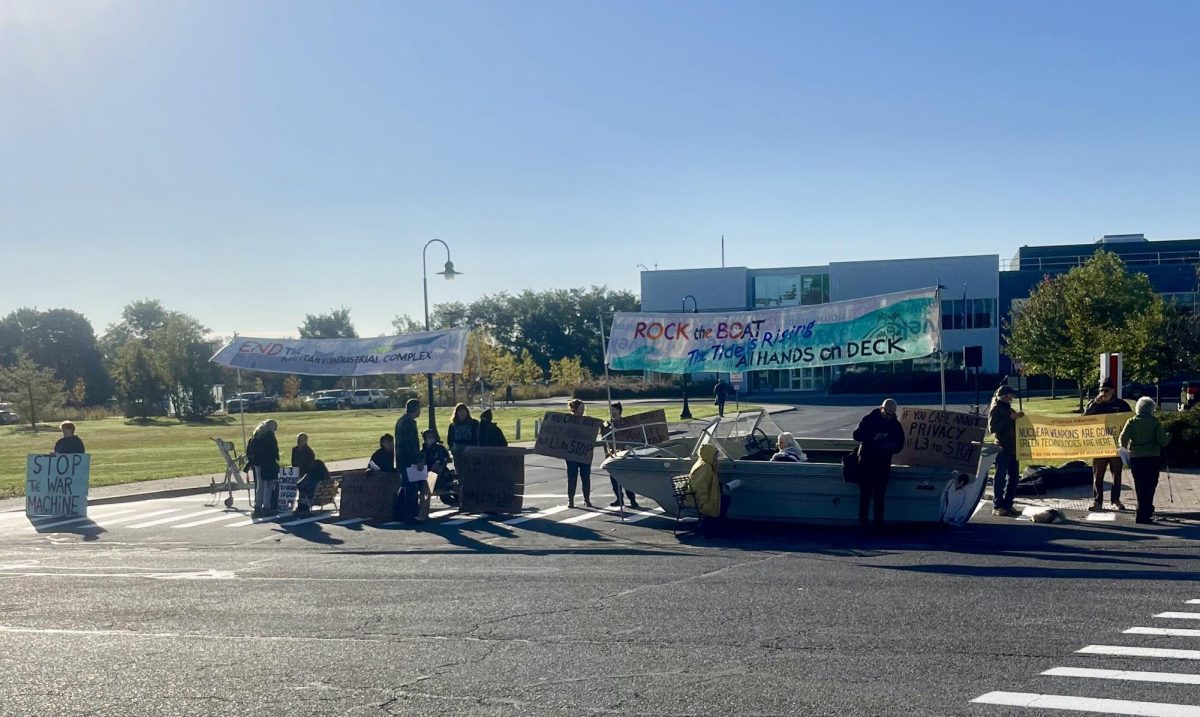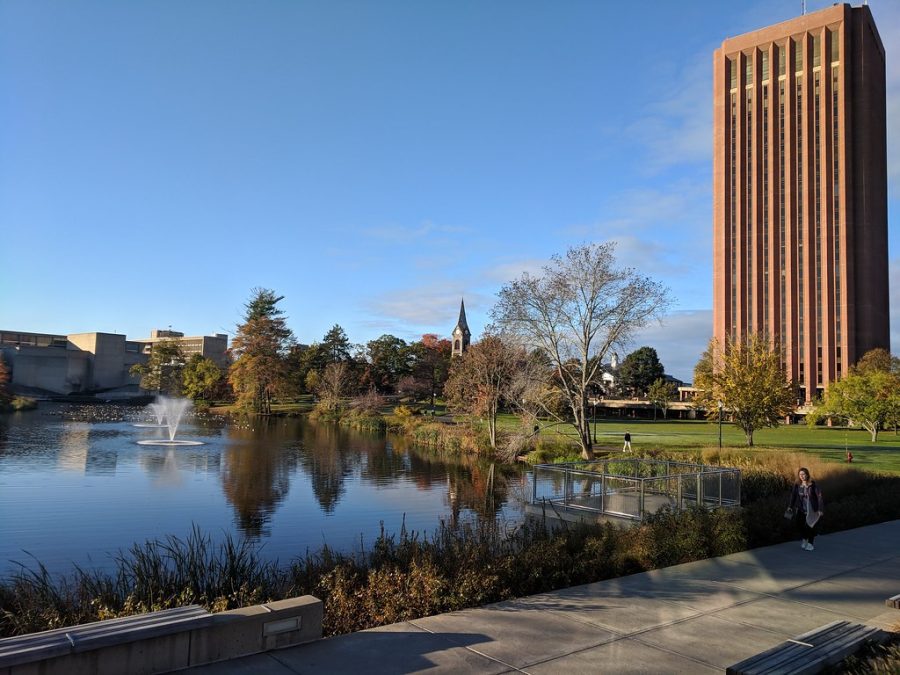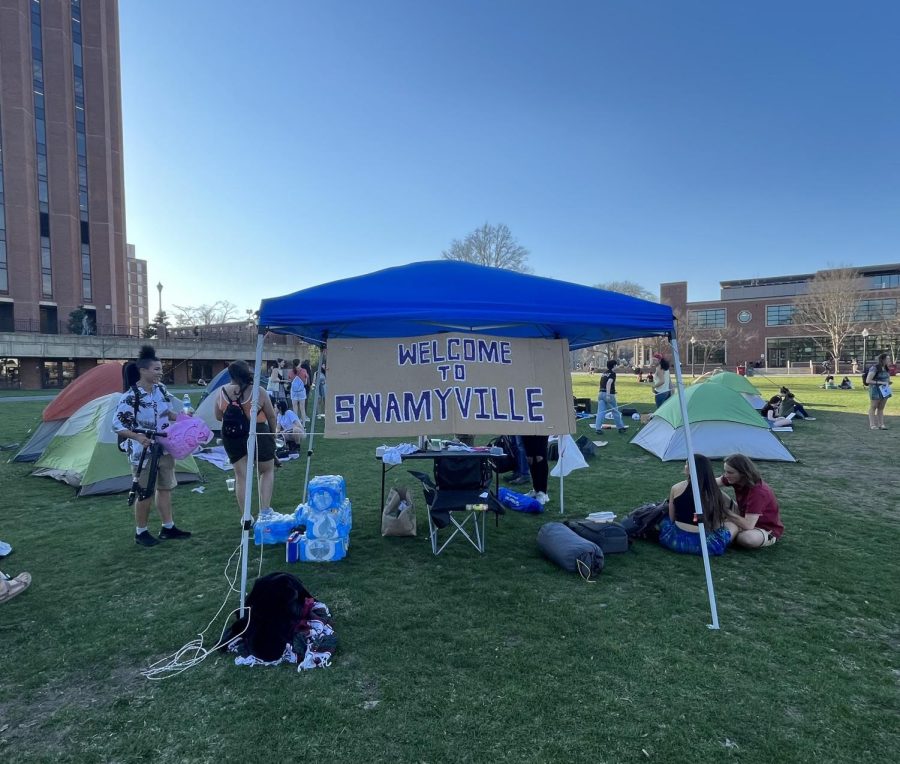By Eric Bosco
Dozens of students looked on as the UMass Fossil Fuel Divestment Campaign draped a giant orange message over the university parking garage the afternoon of Thursday, October 17.
The message asked University of Massachusetts President Robert Caret to “Divest From Fossil Fuels, Reinvest in Our Future” and pinned responsibility for the yearly 5.1 million climate change related deaths on the fossil fuel industry.
The Campaign’s goal is a meeting with President Caret before the end of the semester so that the group can ask him to freeze all investments in the fossil fuel industry and divest within the next five years, said Divest UMass Media Coordinator Samuel King.
King, a senior studying Sustainable Community Development through the BDIC, program sees divesting as “a strategy to confront the climate change crisis.”
“We know that climate change is an imminent and urgent threat to our future economic world. The world into which we’ll graduate.”
The group did not ask the University for permission to hang the giant banner, said Samuel King.
“Sometimes you have to do things that shock people out of their daily lives. Nobody was expecting this and that’s why it has an effect. A lot of the people you saw singing here today, it was their first time doing something like this,” said King.
In the last year, students at more than 300 schools in the United States have formed groups similar to Divest UMass. The movement was sparked by a group formed by environmental writer Bill McKibben called 350.org, which refers to the theoretical safety limit of 350 parts per million of carbon dioxide in the atmosphere.
The buzz around the growing fossil fuel divestment movement harkens back to the divestment from South Africa movement of the 1970’s and 80’s. UMass Amherst was one of the hundreds of schools, religious groups, and businesses that through the tactic of divestment contributed to the dismantling of the Apartheid system in South Africa.
“That was a massive movement and we’re hoping to use that same tactic and be successful in the same way,” said King. ” Oppressing people and taking away their autonomy is a horrible thing much in the same way that climate change effecting people as we point out here (on the giant orange sign and the 5.1 million deaths per year) is morally abysmal.”
Six universities have committed to divesting from the fossil fuel industry, including Hampshire College, which was the first school to divest from apartheid South Africa in 1977 and the first to commit to fossil free investments in December of 2011.
The Northampton City Council voted to divest on September 5th, 2013 joining a number of cities and towns across the state including Cambridge, Province town, and Truro who all committed to divestment this spring and summer.
At the November 4th Amherst Town Hall Meeting, a resolution proposed by Alice Swift will be considered to call on the Hampshire County Retirement Board and the town treasurer to review investment portfolios, prelude future investment in the fossil fuel industry and release yearly updates on the progress.
The lone general petition article on schedule for the Town Hall Meeting has members of the Divest UMass Campaign excited.
“If Amherst is going along with it, there would be no reason why UMass shouldn’t, ” said King. It’s the right thing to do; morally, socially, and economically. It’s going to be the right investment to be out of fossil fuels within the next twenty years.”

